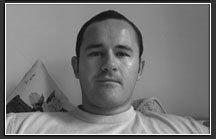Leaving London
Starting with a 06:40 flight out of Gatwick tomorrow morning, I embark upon an 85 day excursion that will cover as many as 11 countries and over 15,000 miles. GlobalTrek:Africa has been a work in the making for months and now awaits me; a journey unlike any other I've ever undertaken.
I am well prepared for this journey both emotionally and physically and still, I know this will be an incredibly challenging and revealing experience. I will witness incredible things as well as bear witness to the shame of humanity on a continent vastly different to any other. Rich and inviting, I long for Africa and all that it is to me. I have been awaiting this moment ever since that long hard night on the Maasai Mara in Kenya when I knew that my heart belonged there.
My thoughts are focused around adventures and conscious experiences and yet I also recognize that I will be faced with opportunities for which the rewards are plentiful, but with which come grave risks. The two most concerning to me are possible excursions into the eastern DRC and Burundi. I very much wish to venture here, but the situation changes with astonishing frequency and the decision will be made very last minute. Through all of this, know that I undertake nothing lightly and am fully aware of what I'm doing. I'll leave the pseudo-will for when I'm faced with one of these sorts of choices.
First stop, Senegal where I'll be soaking up the sun on the beaches north of Dakar and heading North towards the border with Mauritania where I hope to see some of the history of this amazing place. Sadly, and like most of the countries I will visit, I have only a few days here. The pace of this trip is, almost without question, break-neck speed, but I've had practice as in 100 days in 2002, I visited 11 countries while on Semester at Sea.
So many thanks are due to my friends and family for their support in the run-up to this trip. I can hardly express the gratitude I wish to convey to you for all that you've offered me and keep as a main aim to make you proud of what I intend to do while in Africa. Special shout-outs to Michael Jungman and Paige Huetteman for keeping in touch on nearly daily basis and to Geremy Kornreich for all the witty comments he's likely to lay out.
And so begins GlobalTrek:Africa. Stay tuned, stay in touch and strap in - this is going to get wild!









